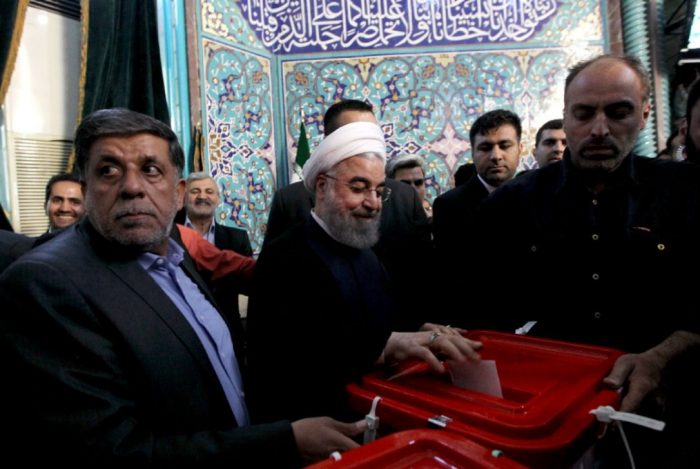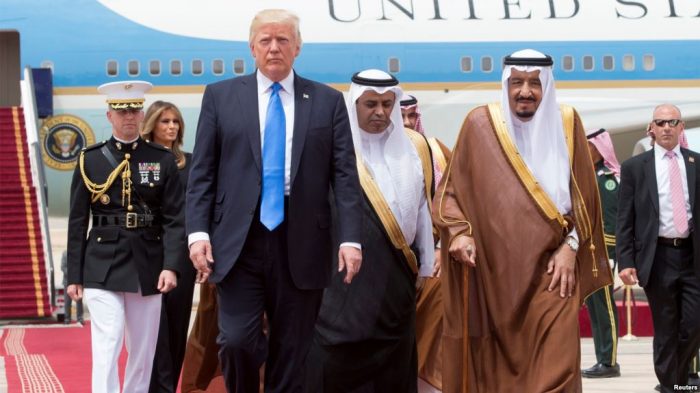For the Iranian people, the choices in this year’s presidential election were appalling. They could choose to return Hassan Rouhani to a second term after his first term was marked by a nuclear deal that provided no discernible economic benefits to them, presiding over a government rife with corruption and massive protests over inflated salaries for officials, and a brutal crackdown on human rights that saw everyone from students and bloggers to journalists and artists imprisoned.
Or they could select Ebrahim Raisi, a cleric with no discernible public backing who is widely reviled for his role in executing 30,000 imprisoned Iranian dissidents in 1988.
To say the Iranian people’s choices ranged from bad to awful is an understatement, but that is exactly the kind of predicament the mullahs wanted to arrange for their people; to be forced into selecting the lesser of two evils.
It is also why Rouhani’s election was met with media messages of a “moderate” win; all of which suits the mullah’s purposes to frame the narrative for the next four years as a moderate Iran confronts an “extremist” Trump administration with its “extremist” Arab allies.
The mullahs are not stupid, they realize the geopolitical landscape is rapidly changing on them as their Arab rivals are linking arms with a newly energized U.S. in articulating a policy of confronting Iran rather than appeasing it.
What is driving that change has been the Iranian regime’s own policies over the past four years which has seen the regime ignite the Syrian civil war and turn it into an abattoir of death. It has also started the Houthi rebellion in Yemen which has drawn Saudi Arabia into a direct proxy war with Iran.
Couple that with an economy mired in mud and a newly aggressive ballistic missile program that has freaked out the world and you get a recipe for unlikely alliances being forged now.
You know things are different in the world when direct, non-stop service between Tel Aviv and Riyadh has been inaugurated.
But the change in the political environment worldwide pales in comparison to the stark changes happening internally in Iran.
The regime has already struggled mightily to suppress social media and encrypted communications apps such as WhatsApp and Telegram. It’s first taste of the power of social media campaign in disputed 2009 elections in which protests and the coverage of the crackdowns were largely promoted and carried on social media.
In response under Rouhani, the regime has sought to suppress all dissent online which is a virtually impossible exercise. The regime has used its Basij paramilitaries to seek out and arrest anyone viewed as disruptive whether it’s a Snapchat post of a woman riding a bicycle or an Instagram post of a woman not wearing a hijab.
Evin Prison has been filled with such threatening individuals as a bunch of students posting a viral video of them dancing to Western music.
Nowhere has the internal threats to the regime been more apparent than in the increased visibility and activity of organized Iranian resistance groups; long a thorn in the mullah’s side.
According to dissident media outlets, a vast network of dissidents supporting the Iranian opposition People’s Mojahedin Organization of Iran (PMOI/MEK) came alive in unprecedented scale to voice the true feelings of the Iranian people about the candidates and the regime in its entirety.
Cities and towns across the country, including major metropolitan centers such as Tehran, Mashhad, Isfahan, Tabriz and Shiraz, have witnessed scenes of brave activists daring long odds and challenges to put up large posters and images of Iranian opposition leader Maryam Rajavi from bridges and overpasses, car windshields and even the walls of buildings belonging to the regime’s security forces, such as the Revolutionary Guards and Basij.
Open support for the MEK inside Iran is forbidden considered a capital crime to any activists that are caught, with torture and possibly even execution awaiting them. Long-time MEK supporter Gholamreza Khosravi was jailed and eventually executed for merely providing financial support for an MEK-affiliated satellite TV network in 2014.
Also, the Iranian regime’s claims of a “historic” election in terms of turnout has also been calle3d into question by the National Council of Resistance of Iran which outlined how the regime in the past has simply cooked the election books.
“One of the simplest and easiest way is multiplying the real votes of the candidates by a factor so that the number of participants in the elections can be shown as several times higher than the real figures,” the NCRI said in a statement. “One of the other ways to cheat, is printing additional ballots and producing fraudulent ballots in secret sites and inserting those ballot boxes into counting centers so that the number of participants is shown higher at the polls.”
Outside of the media-centric environs of Tehran, voter turnout was largely apathetic and low with reports of boycotts in many provincial towns and cities from locals dissatisfied with the economic problems besieging them.
What hasn’t changed in Iran is the basic make-up of the power elite still holding control firmly in their hands which is the religious body comprising most of the parliament and councils governing the judiciary, civil service and financial sector, along with the Revolutionary Guard Corps which still controls virtually all the state industries and companies.
As Rouhani moves forward, he will find a very different world than the one that embraced a flawed nuclear deal two years ago.
The era of appeasing Iran is over.
Michael Tomlinson

